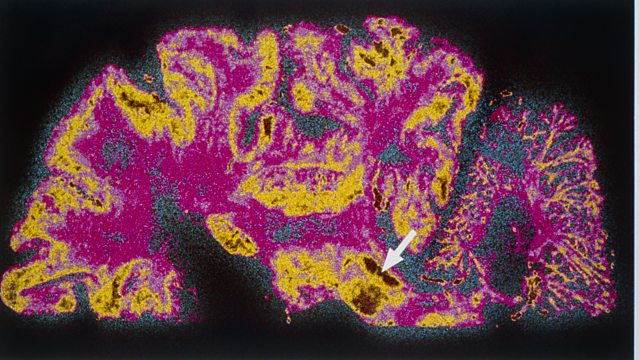Reversing Parkinson's
Cell therapies for Parkinson’s disease
Parkinson’s Disease is one of the major neurodegenerative conditions. Cells die, for reasons not fully understood, causing a reduction in the production of the neurotransmitter, dopamine, and a raft of physical and behavioural problems. Although effective drug treatments are available, they wear off over time and have side effects. The highly individual nature of the condition and variation in its progression also makes dosage difficult. Sue Broom reports on two new approaches that could lead to treatments for Parkinson’s. One potential therapy is to replace the dying cells with new ones. This was tried several decades ago but the results were not promising. The new Transeuro trial of cell therapy hopes to lead to better outcomes. The second approach is to use stem cells. Sue Broom talks to the doctors and patients involved in these trials.
Image: Parkinson's disease MRI brain scan,Β© Science Photo Library
Presenter/Producer: Sue Broom
Last on
More episodes
Previous
Next
Broadcasts
- Mon 26 Sep 2016 21:32GMTΒι¶ΉΤΌΕΔ World Service except News Internet
- Tue 27 Sep 2016 03:32GMTΒι¶ΉΤΌΕΔ World Service East Asia & South Asia only
- Tue 27 Sep 2016 04:32GMTΒι¶ΉΤΌΕΔ World Service Australasia
- Tue 27 Sep 2016 06:32GMTΒι¶ΉΤΌΕΔ World Service Europe and the Middle East & East and Southern Africa only
- Tue 27 Sep 2016 14:32GMTΒι¶ΉΤΌΕΔ World Service except News Internet
Space
The eclipses, spacecraft and astronauts changing our view of the Universe
The Curious Cases of Rutherford and Fry
Podcast
-
![]()
Discovery
Explorations in the world of science.



